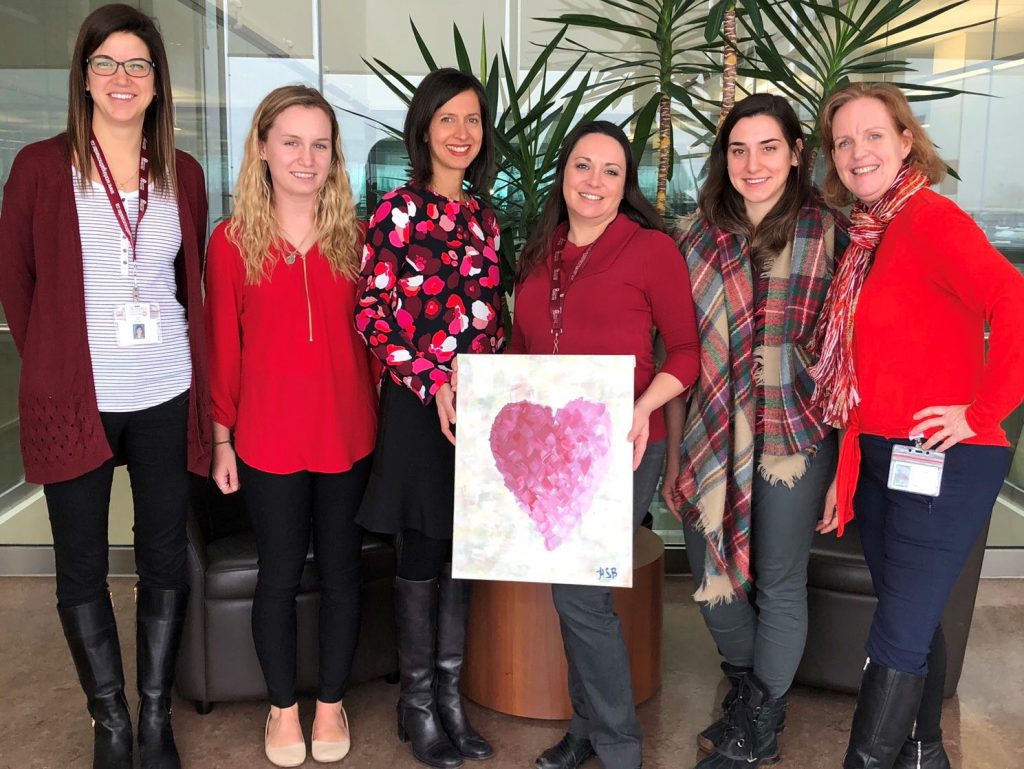
Helping those with heart failure live long healthy lives
Carol has been an avid clogger for the past 20 years. What’s clogging, you ask? It’s a folk dance similar to tap dancing. Carol is part of a clogging group that travels all over the United States for workshops and conventions. Clogging is about more than exercise and socializing for Carol. It’s part of who she is.
In the fall of 2017 Carol started to notice an unsteadiness in her legs. Despite using her asthma inhalers, she also had a cough that wouldn’t go away. Both issues were starting to affect her life, including her clogging.
“My legs would get wobbly when I was clogging, so I’d sit down and take a break. Then when I stood up they’d be wobbly again and it would take me a minute to reorient myself. I just couldn’t keep up anymore,” she recalls.
As advised by her family doctor, Carol went to the emergency department at Hamilton Health Sciences’ Juravinski Hospital and Cancer Centre. She was in heart failure.
Heart failure is one of the most common causes of hospitalization in older adults.
Heart failure occurs when damage to the heart makes it too weak or stiff to work properly. Common causes include heart attacks, high blood pressure and other conditions that affect the heart. When someone is in heart failure, their heart must work much harder to pump blood through the body.
Carol is not alone. There are about 600,000 Canadians living with heart failure. It’s one of the most common causes of hospitalization in older adults. For about a month after they leave the hospital, these patients have a higher risk of their symptoms becoming worse. One in four patients return to the hospital during this period.
A Hamilton doctor is on a mission to change this.
Exploring heart failure services
Dr. Harriette Van Spall, a cardiologist at Hamilton Health Sciences and researcher at Population Health Research Institute, is exploring how improving services for heart failure patients can benefit their health. She recently led the Patient-centered Care Transitions in Heart Failure (PACT-HF) clinical trial, which investigated how education and access to resources following hospital discharge can help patients like Carol avoid another hospital admission.
Her prior research shows certain services, like regular nurse visits and multidisciplinary clinics, can reduce readmissions in heart failure patients. These services require collaboration among multiple health care settings and professionals, which makes them difficult to implement. The PACT-HF study brought everyone together to set patients up for success.
“Heart failure requires lifelong management,” says Dr. Van Spall. “Supporting these patients when they’re most vulnerable is a key way to ensuring they’re well equipped to manage their condition. And, if managed with appropriate services, they can live long healthy lives.”
“we need to ensure that all Canadians have access to heart failure care regardless of geography”
The goal of the study was to determine if the services would reduce emergency department visits, hospital readmissions, or death. While the results showed no impact on these outcomes, the services had a significant impact on the patient’s quality of life. They felt more prepared for their recovery process and ongoing management once they were home.
“Dr. Van Spall understood how important it was to me to return to clogging. Now, I’m thrilled to be back to clogging three times a week,” says Carol.
“The results indicate that there is merit to providing transitional care services as they improve quality of life. We just need to find which services will also impact readmissions and death,” says Dr. Van Spall.
“Importantly, we need to ensure that all Canadians have access to heart failure care regardless of geography. Access to specialized treatment centers, use of proven-effective medications, and outcomes depend to a large extent on where patients live. We are now developing and testing digital health technologies that will allow us to provide care in remote and rural regions, so that all patients can access optimal treatment. With new technologies that bring specialized services and treatments to where people need them, we will continue to explore how best to tackle the epidemic of heart failure.”

Dr. Van Spall and her research team
Click here for more stories of our explorations.
Research at Hamilton Health Sciences is conducted in partnership with McMaster University.
